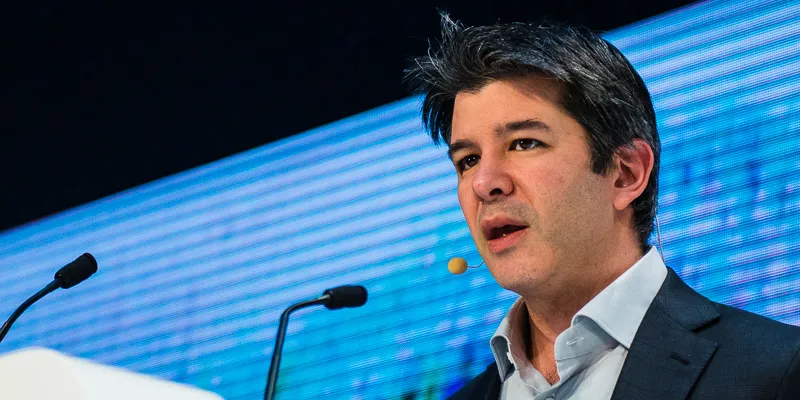A year after exiting China, Uber merges with Russia’s Yandex
Uber on Thursday announced that it will merge its Russian business arm with the taxi arm of Yandex, Russia’s search engine, also known as Russia’s Google. The combined entity is believed to be worth over $3.7 billion.
The merger takes place three and a half years after Uber officially launched in Moscow. The deal is expected to be closed by the end of this year.
A New York Times report said the combined entity will be operated by both Uber and Yandex, with Tigran Kudaverdyan, the CEO of Yandex.Taxi, heading the new venture. The newspaper stated that while Uber will invest $225 million, Yandex will invest $100 million to retain a majority stake in the new entity. This move by Uber comes close on the heels of Travis Kalanick's resignation as Uber’s CEO.

Changes in the game plan
An email note sent to the employees by Pierre-Dimitri Gore-Coty, head of Uber’s business in Europe, the Middle East and Africa, and published on the company website states:
"Uber and Yandex have entered into an agreement to form a new company which combines our Rides and EATS businesses in Russia, Azerbaijan, Belarus and Kazakhstan, as well as Armenia and Georgia where we currently do not operate. This is an exciting opportunity in a unique situation and our operations in other countries will not be affected.
"Combining our business with Yandex will give us a very significant stake in a new company which will initially serve more than 35 million trips each month and operate in an incredible 127 cities in six countries across the region. Uber will also have three of the seven seats on the new company’s board and—together with the $225 million cash investment we are making in the new company—our 36.6 percent ownership stake will be worth almost $1.4 billion."
Also read: How much hustle is too much, and other lessons from the Travis Kalanick saga
Facing the Chinese dragon
The merger is a rather unusual move on Uber’s part, and marks a clear shift from its strategy of aggressive push into global markets. A year back Uber had to leave China in a similar fashion.
Uber was bleeding in China, and had to sell its entity to Didi Chuxing in a deal that valued the combined entity at $35 billion. Didi also made a $1-billion investment in Uber at an estimated valuation of $68 billion. Uber’s stake in Didi stands at 17.5 percent
In Russia, Uber was engaged in a battle with Yandex.Taxi in all the regions the latter was operating in, including Belarus, Georgia, Azerbaijan and Kazakhsthan.
Yandex held a significant stake over Uber, with the former owning and operating a massive mapping database. Also, Yandex was able to aggressively market is services across its different online properties since it is a well-established internet brand across eastern Europe. In the face of all this, Uber couldn't hold its ground for long.
In a Facebook post, Travis Kalanick, Founder and former CEO, Uber stated:
“It was a real honor getting to know and work with Arkady (founder of Yandex) in architecting this partnership.
"The combined entity will fuse two incredible teams in technology and operations with a shared vision for the future of transportation. I am excited for what Uber and Yandex can achieve together over the coming years to better serve cities and their citizens in Russia and the surrounding region.”
The merger ends a costly battle that Yandex.Taxi and Uber were engaged in for the past three years. A NYT report said: “Players on both sides say that rather than spending money fighting for market share, a deal made the most sense.”
Implications for Asian markets
The deals in Russia and China reflect the fierce competition globally in the cab industry. The latest deal could have implications for the Asian cab market as well. As of now, Uber is facing a tough fight in the south-east Asian market with Grab and Gojek.
Indonesia-based Gojek and Grab Taxi have already ramped up their India R&D centres. Arul Kumaravel, VP–Engineering at Grab, adds that their focus is just to get great engineering talent, which is available in Bengaluru. They do not intend to start operations in India.
Didi has raised $5.5 billion and it aggressively eyeing the global market. Gojek, according to a TechCrunch report, has raised $1 billion.
Also read: Is India going to be the battleground for global cab aggregators?
In December 2015, Ola, GrabTaxi, Lyft, and Didi Chuxing had formed a global alliance to take on Uber in India. With its naked global ambition, will Didi look at investing more in the Indian market and pump more money into Ola? Or will it look at a deeper partnership? Also, with Uber changing its strategy and looking at more partnerships, will it look for a tie-up with Ola? Only time will tell.







